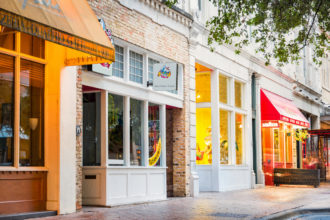Premises Liability 101
 When you choose to shop at a store, explore an attraction, or even visit a private residence, landowners have certain legal obligations to you as a visitor. Those legal obligations depend on the relationship between the landowner and the visitor. This article explores the three relationships defined by Colorado law and highlights some of the more common premises liability cases we’ve seen.
When you choose to shop at a store, explore an attraction, or even visit a private residence, landowners have certain legal obligations to you as a visitor. Those legal obligations depend on the relationship between the landowner and the visitor. This article explores the three relationships defined by Colorado law and highlights some of the more common premises liability cases we’ve seen.
What are the 3 relationships?
Trespasser – Trespassers get the least amount of protection under the law because they are on the landowner’s property without the landowner’s consent. For a trespasser to recover for injuries caused by a landowner, the injuries must be willfully or deliberately caused by the landowner.
Licensee – Licensees enter the property of another for their interests, under the landowner’s permission or consent. A social guest is considered a licensee. Licensees can recover for injuries caused by the landowner’s failure to exercise reasonable care for dangers created by the landlord, danger of which the landowner actually knew of, or if the landowner unreasonably fails to warn of dangers not created by the landowners which are not ordinarily present on property of the type involved and of which the landowner knew.
Invitee – Invitees are typically on a landowner’s property to transact business that is of mutual interest to both the invitee and landlord. There are other instances where a visitor is an invitee, but in most cases, an invitee is a guest of a store, restaurant, or another business establishment. Invitees are afforded the highest protection under the law and can recover for injuries caused by the landlord’s unreasonable failure to exercise reasonable care to protect against dangers the landowner knew or should have known about.
Common Types of Premises Liability Cases
Throughout the years, we have seen many types of premises liability cases. Although we’ve seen and worked with it all, we’ve found that some of the most common types of premises liability cases are related to:
Defective Stairways and Elevators – Many injuries are caused by defective stairways and elevators. Steps that are not to code or lacking handrails present dangerous conditions to the visitors and occupants of the property. Improperly maintained elevators can also cause serious injuries.
Slip and Fall – Slip and fall accidents occur when landowners fail to notify visitors of wet or slippery floors and surfaces, fail to maintain clear paths, or fail to notify visitors of tripping hazards (or to completely remove those hazards). The details of each slip and fall case are extremely important in determining a landowner’s liability, so photos of the dangerous condition in these and other premises liability cases are always useful.
Trampolines and Fitness Equipment – Trampolines can be fun, but if not properly maintained or used as instructed they can cause serious injuries. Fitness equipment can also lead to serious injuries if it’s not properly maintained.
Snow and Ice – During the cold winter months, Colorado property owners are obligated to maintain their sidewalks to keep them clear of snow and ice accumulation. Not every fall on snow and ice results in a case, but landowners who know of a dangerous condition on their property and don’t take reasonable steps to remedy the condition may be held responsible for personal injuries that occur due to unsafe conditions caused by snow and ice.
If you or a loved one has been injured because of a landowner’s negligence, it’s in your best interest to seek out legal representation right away. A seasoned premises liability attorney will be able to determine whether you have a case and argue for your rights and remedies under the law. With years of experience under our belts, Mintz Law Firm’s team is ready to fight on your behalf. Reach out to our office for a free case evaluation today.
